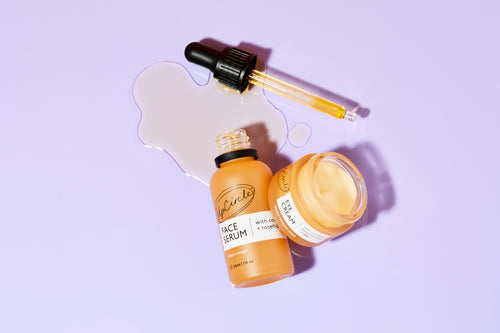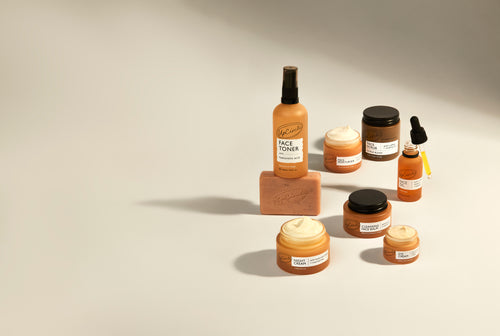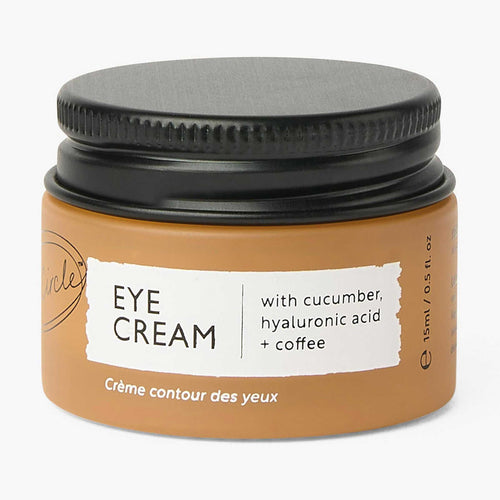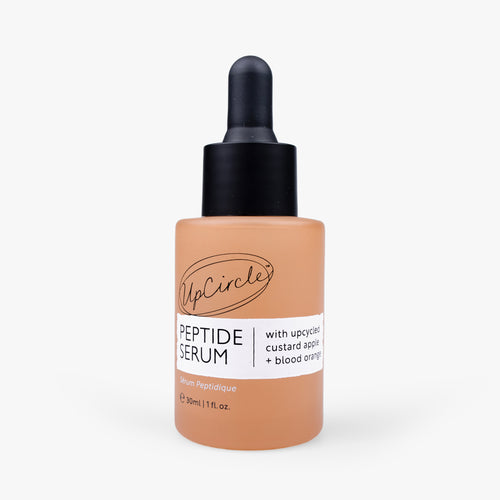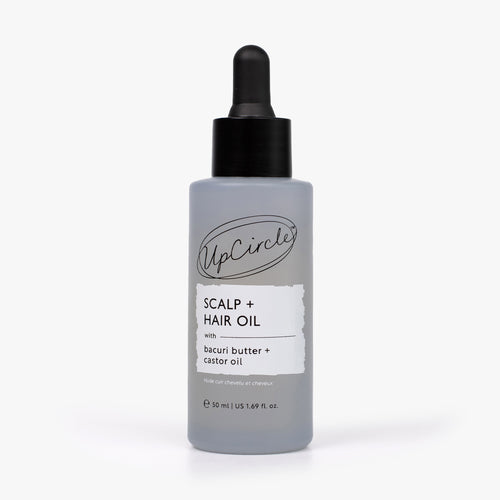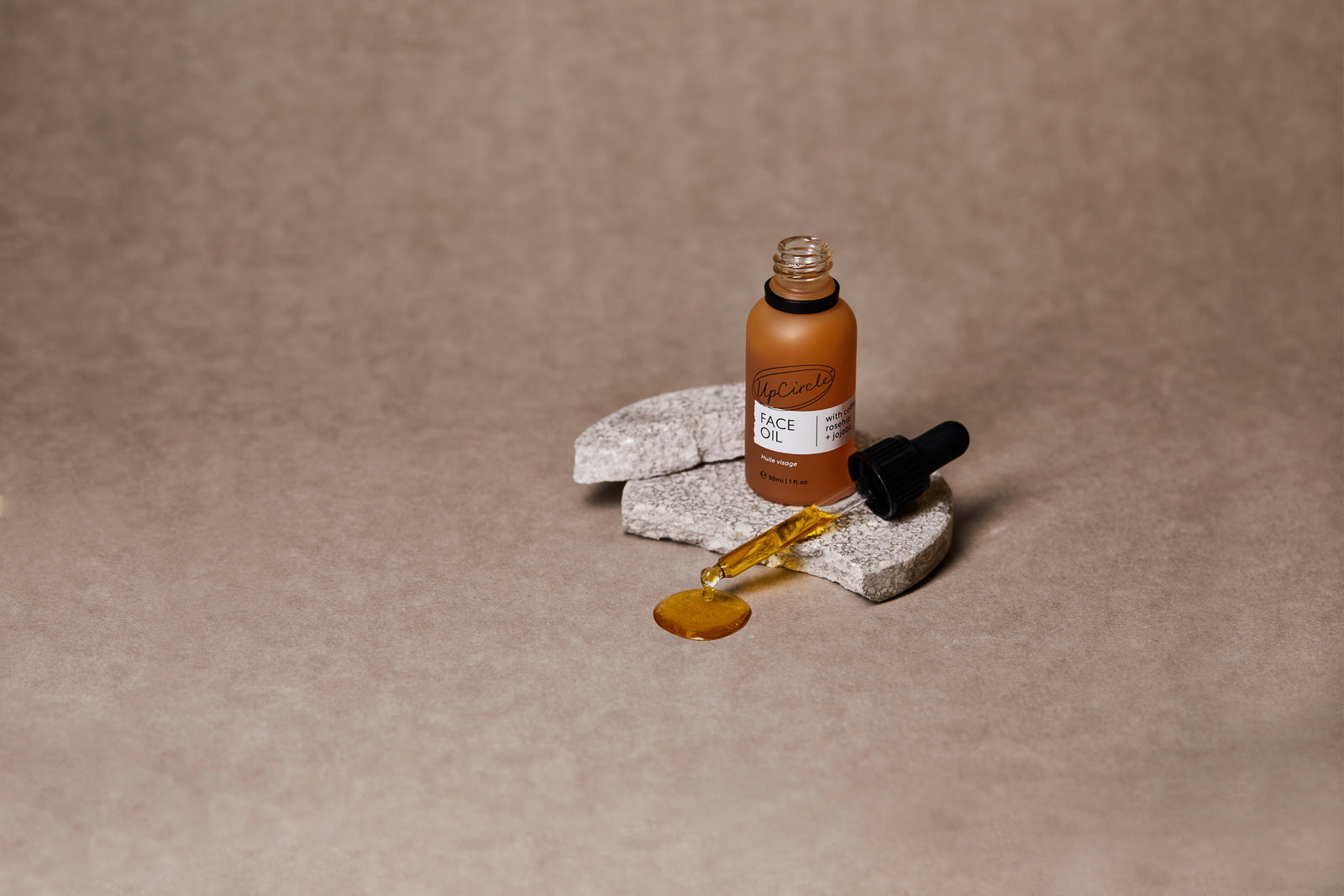The health benefits of vitamin C have long been known, with people especially trying to consume more when they feel a little under the weather. However, boosting your immunity isn’t the only way you can benefit from this vitamin.
Vitamin C is one of the main skincare vitamins that people try to incorporate into their routines, and for good reason.
What are the main benefits of vitamin C for skin?
Vitamin C is hailed for its skincare benefits, specifically around the appearance of ageing skin. From stimulating collagen production in the skin to helping preserve skin elasticity and protecting against free radicals, to brightening up the skin’s complexion – there’s a lot to love!
Before we get into the benefits though, we do want to remind you that there’s nothing that needs changing about ageing skin – the main thing to strive for is healthy skin. Showing signs of ageing shows that you’ve lived, and to age is a privilege.
If you want to see what real skin looks like, head over to our Instagram.
1. Helps to stimulate collagen production
Vitamin C is essential for collagen production in the skin. Collagen is the most abundant protein in mammals, comprising around 30% of the proteins in the whole body. Many people wrongly assume that collagen is a single substance, but collagen is in fact a family of 28 known substances – but for ease, we’ll stick to calling it collagen.
Collagen makes up the main structural protein in the extracellular matrix – which is a structural support network made up of diverse proteins, sugars and other components – of the body's connective tissues including the skin, bones, cartilage, tendons and ligaments.
Vitamin C plays a big role in connective tissue healing and promoting the proper triple helix conformation of collagen. It has also been found to increase type I collagen synthesis, which is by far the most abundant type of collagen in the body.
This all sounds very scientific, so what does it mean for your skin?
Collagen works to help your skin retain its structure and improve skin elasticity. Preserving skin elasticity is what helps to minimise the appearance of loose or sagging skin, helping to keep your skin supple and firm.
It also plays a huge role in keeping your skin hydrated, preventing sore, flaky skin. With increased moisture in the skin comes a strengthened skin barrier. The skin barrier plays an important role in keeping your skin healthy by keeping moisture locked into the skin and keeping harmful bacteria and environmental stressors out.
2. Protects against free radicals
Free radicals are atoms without an electron pairing on its outer shell. While they can be produced naturally in the body, an excess of free radicals can cause cell damage. Free radicals ‘steal’ an electron from a healthy molecule to form their missing pairing, which subsequently damages the healthy cell.
Antioxidants work to destroy free radicals to prevent skin damage, but during this process, the antioxidant itself becomes oxidised. This is why it’s really important to keep replenishing the antioxidants in your body.
Vitamin C is a potent antioxidant that helps the body neutralise free radicals caused by environmental stressors like pollution and UV radiation. It’s important to note that while vitamin C offers some protection against UV damage, it is never a substitute for using a high quality mineral sunscreen every day.
3. Helps the skin retain moisture
Vitamin C acts as a humectant, drawing water to the skin and locking that moisture into the skin. It also supports the skin's natural barrier function, which is crucial for preventing water loss. By strengthening the skin barrier’s natural barrier, vitamin C helps to reduce transepidermal water loss, keeping the skin hydrated.
We’ve said it before and we’ll say it again, but moisturised skin is happy skin. Skin that is hydrated also feels softer and smoother, and is less prone to dryness.
4. Brightens the complexion
Vitamin C is used to help fade dark spots and hyperpigmentation on the skin – areas of skin that are darker due to an increase in melanin in the skin. Using products that contain vitamin C can help to even out the skin tone and brighten the complexion.
Can you use vitamin C for sensitive skin?
Those with sensitive skin may be wary of using any new ingredients on their skin. Using natural skincare products that are formulated with ingredients rich in vitamin C is a great way to help stimulate collagen production and brighten the skin, rather than using a potentially harsh topical.
As with everything when it comes to sensitive skin, every person is different. However, try to avoid products that use harsh ingredients in their formulas, and make sure you know exactly what you are going to be putting on your skin.
UpCircle’s Vitamin C Rich Oil
Formulated with both coffee oil and rosehip oil, our multi award-winning Organic Face Oil is dermatologically approved and suitable for all skin types, including sensitive skin.
Brimming with skin-loving ingredients like jojoba oil, sea buckthorn oil and sunflower seed oil, this oil is 100% oil based. This means that it works through occlusion, locking in the hydration provided by the moisturiser by forming a protective seal over your skin.
This Face Oil is made with upcycled coffee oil from residual coffee grounds collected from local cafés across London. Rich in vitamin C, the antioxidant-rich coffee and rosehip oils help to fade dark spots and scars while also brightening the complexion.
Our fan-favourite oil also doubles as an excellent hair oil. The jojoba oil softens thick hair while the rosehip oil infused into the oil keeps the skin healthy and reduces irritation.
How to use: After using your moisturiser, apply a few drops to your fingertips and massage into skin. YouTube Video.
Discover our full collection of skincare, haircare and fragrance.

